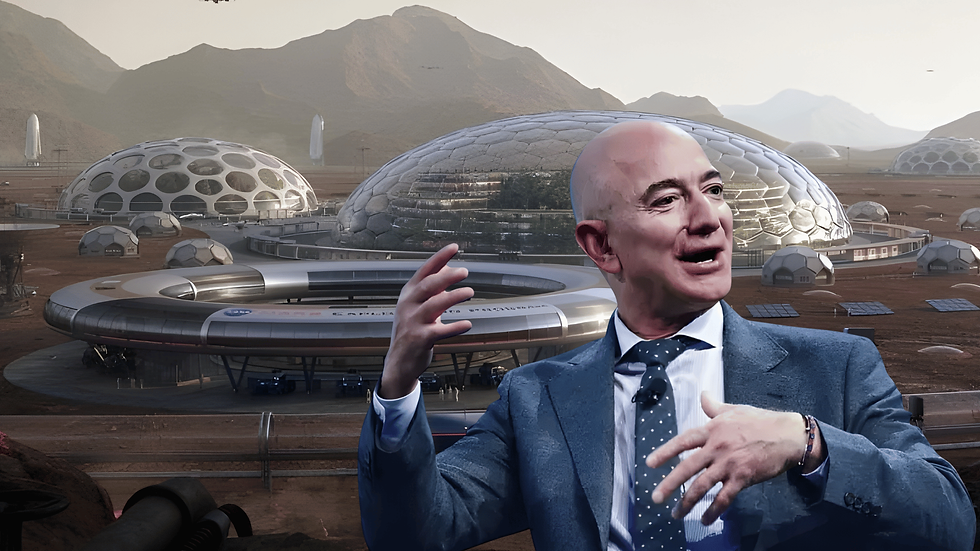Jeff Bezos Predicts Millions Living in Space Within Decades
- theglobsy
- Oct 5
- 3 min read

Amazon founder and Blue Origin CEO Jeff Bezos believes humanity is on the verge of a massive shift — a future with millions living in space within the next few decades. Speaking at the Italian Tech Week in Turin, Bezos expressed strong confidence that this vision is not science fiction but a logical next step for civilization.
He told Italian entrepreneur John Elkann that people will soon choose to live in space “mostly because they want to,” not because they have to. According to Bezos, the coming generations will inhabit orbital habitats, supported by advanced robotics and artificial intelligence that handle the heavy labor.
Bezos’s Vision of Millions Living in Space
At the event, Bezos described a world where orbital colonies and vast space stations could host thriving human communities. The idea of millions living in space centers on automation — robots will build and maintain structures in orbit, freeing people to focus on creativity, science, and culture.
While this prediction may sound futuristic, Bezos’s company Blue Origin is already developing technologies to make it possible. Its new project, Blue Ring, aims to provide a space mobility platform capable of powering and hosting payloads in orbit, potentially forming the foundation of future space settlements.
Millions Living in Space vs. Musk’s Mars Vision
Bezos’s optimism puts him in direct contrast with Elon Musk, who envisions humans colonizing Mars by 2050. Musk aims for a million people on the Red Planet; Bezos, however, imagines millions living in space closer to Earth — in orbit rather than on another planet.
This rivalry defines two different paths for human expansion: Musk focuses on planetary settlement, while Bezos emphasizes sustainable orbital living supported by AI, robotics, and solar power.
AI, Data Centers, and the Future of Space Industry
Another major part of Bezos’s plan involves space-based data centers. He predicts that in the next couple of decades, companies will build computing facilities in orbit to take advantage of constant sunlight and natural cooling. This aligns perfectly with the millions living in space vision — a self-sustaining infrastructure powered by solar energy and AI-driven systems.
Bezos called the current AI boom a “good bubble,” emphasizing that industrial growth is being driven by innovation rather than financial speculation. To him, the merging of AI and space industries marks the start of humanity’s next phase of evolution.
Challenges Ahead for Millions Living in Space
Despite his optimism, the vision of millions living in space faces major obstacles. Even today, space travel remains expensive and limited to trained astronauts. Building livable habitats in orbit requires technological leaps, from radiation shielding to life-support systems.
However, Bezos believes these challenges are solvable through sustained innovation. By automating construction and relying on reusable rockets, Blue Origin aims to make access to space affordable for both individuals and industries.
A Future Built on Long-Term Thinking
Jeff Bezos’s comments reflect his broader philosophy: long-term, strategic thinking. Just as Amazon evolved from an online bookstore into a global empire, Bezos sees humanity’s move toward millions living in space as an inevitable evolution.
Even if this reality takes longer than expected, the idea itself fuels innovation, competition, and public imagination. For Bezos, space isn’t just a distant frontier — it’s the continuation of human civilization.



Comments